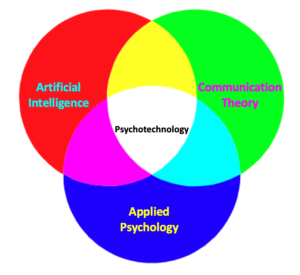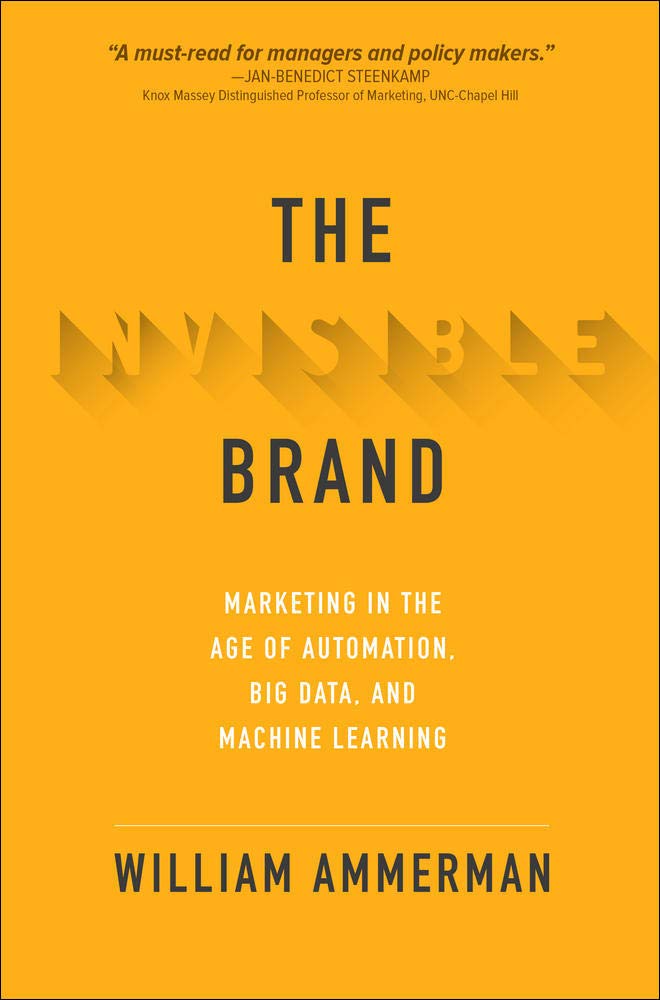Psychotechnology
Psychotechnology is technology that influences people psychologically by deploying artificial intelligence through digital media. The word psychotechnology was coined by William Ammerman in his book The Invisible Brand as a contraction of psychological technology. Informally, it can be shortened to psychotech.
 Psychotechnology is a multi-disciplinary field at the intersection of computer science (AI), applied psychology, and communication theory (including the Media Equation Theory and Captology). The four components of psychotechnology include the personalization of information, the science of persuasion, machine learning, and natural language processing.
Psychotechnology is a multi-disciplinary field at the intersection of computer science (AI), applied psychology, and communication theory (including the Media Equation Theory and Captology). The four components of psychotechnology include the personalization of information, the science of persuasion, machine learning, and natural language processing.
Personalization of Information
The World Wide Web transformed mass media by allowing brands to personalize their messaging to individuals based on data about what we like, where we go, and who we know. Digital advertising technologies (AdTech) first applied personalization to the challenge of delivering narrowly targeted advertising to specific audience segments based on their online behaviors. Marketing technology (MarTech) broadened the approach to deliver personalized messaging to audiences both online and offline based on information gathered from online and offline sources. Native advertising, which mimics the look of online news content, delivers customized messaging to target audiences with tailored headlines, images and content. Social media delivers unique content to individuals based on their interests and associations. Mass media has been replaced by mass personalization.
The Science of Persuasion
Media algorithms reward us by telling us what we want to hear. A social media “like” triggers a small release of dopamine which produces pleasure in our brains and keeps us addicted to our social media feeds. Video game developers use similar triggers to reward us and keep us addicted to our games. Researchers including Clifford Nass and BJ Fogg have transformed the study of persuasion into a science while simultaneously demonstrating that humans can develop an empathetic relationship with their computers. They have also demonstrated that the more humanlike computers seem, the more empathy humans display toward them. As computers gain more humanlike qualities, such as speech, they become more persuasive.
Machine Learning
Algorithms no longer simply predict. They prescribe and improve. Advances in artificial intelligence, including supervised learning, unsupervised learning, and reinforcement learning, ensure that marketers and advertisers are constantly improving the tactics they are using to deliver persuasive and personalized messaging. Quite literally, computers are learning to persuade us using personalized information.
Natural Language Processing
With the emergence of digital assistants like Apple’s Siri, Amazon’s Alexa, the Google Assistant and Microsoft’s Cortana, people have begun interacting with computers through a voice user interface (VUI). Artificial intelligence leverages natural language processing (NLP) to extract features from human speech, interpret those features as words, prepare responses, and compose speech back to humans. Humans have begun having conversations with machines.
The Implications of Psychotechnology
We are now speaking with machines designed to learn how to persuade us with personalized information. The implications are staggering…at once both awesome and terrifying. Psychotechnology has applications for media, marketing, finance, education, and even the arts. For healthcare, psychotechnology holds the promise of helping us overcome challenges like addiction by persuading us to make healthier lifestyle decisions. By giving psychotechnology a name, people may learn to see it at work in their own lives, and hopefully begin a conversation about the opportunities and dangers psychotechnology represents for all of us.
